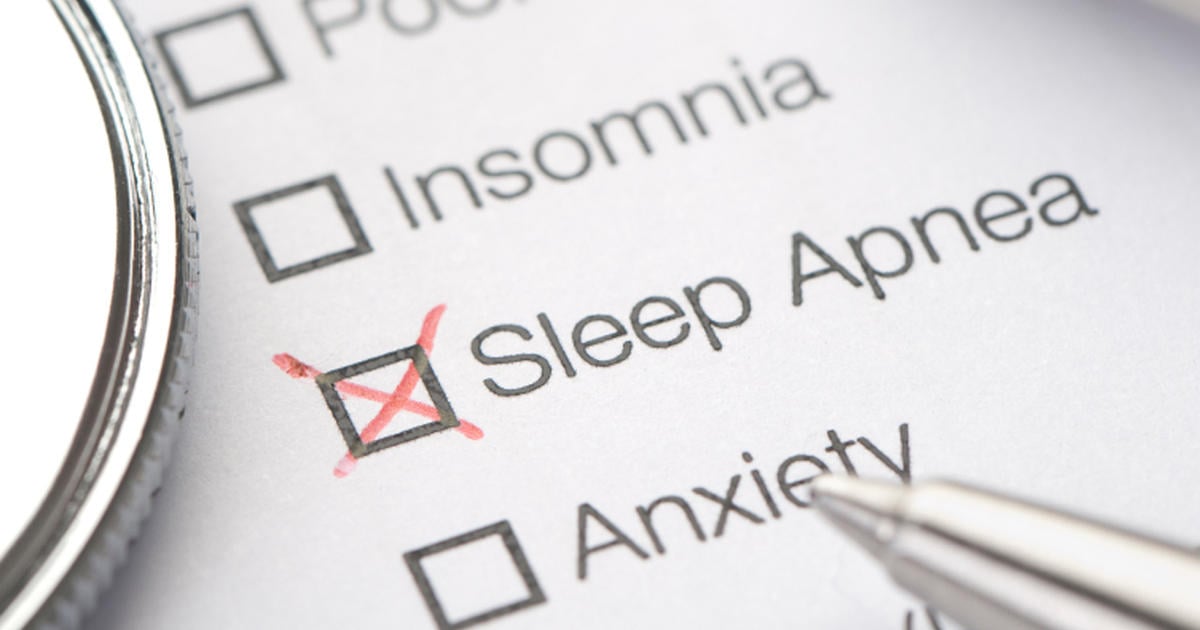Six Signs You May Have Sleep Apnea:
- Do you snore? Snoring is a primary indicator and the most common symptom of sleep apnea. Although snoring does not always equal sleep apnea, it’s worth taking that trip to see your doctor to get evaluated. Many times the “snorer” doesn’t notice his/her snoring, so it’s important for your bed partner or loved one to make you aware. Sleep apnea is a serious sleep disorder and it’s better to be proactive about your health!
- Do you gasp for air during your sleep? If you’re gasping for air, it means you’re trying to catch your breath because your breathing stopped. Sleep apnea is the blockage of your airway during sleep so gasping for air is a clear a symptom of sleep apnea. This causes you to wake up periodically throughout the night feeling a shortness of breath and you remain tired when you wake up.
- Are you tired during the day? Yes, I know what you’re thinking…feeling tired is something we all experience with our busy lives. It’s a common feeling, but that doesn’t mean it’s not something that we should ignore. If you wake up overly tired most times you may be experiencing a symptom of sleep apnea. It’s definitely worth discussing this with your doctor so you can be properly evaluated and receive a proper diagnosis. Take a self-quiz to assess your daytime sleepiness with our interactive Epworth Sleepiness Scale!
- You just can’t sleep, right? If this is the case, you have insomnia. Insomnia is the inability to fall asleep and stay asleep. You find yourself doing everything possible to fall asleep; you toss and turn, and if you snore, gasp for air, or wake up choking it makes the situation worse. If you find it impossible to get into a deep sleep, you should raise these concerns to your doctor. It may be more than just a “sleepless night.”
- Do you experience mood changes? I don’t blame you! If I couldn’t sleep and was constantly tired, I would be in a bad mood myself! When you have untreated sleep apnea, it makes sleeping very difficult. When you can’t sleep you often find yourself irritable, forgetful and it’s difficult to concentrate. Untreated sleep apnea can lead to more severe mood disorders such as anxiety or depression. If you experience mood changes, it’s important to follow up with your doctor for a professional opinion.
- Suffer from morning headaches? Many individuals who suffer from sleep apnea complain of headaches in the morning. When you experience frequent pauses in your breathing throughout the night the oxygen levels in your brain stay low which causes pain. If you experience morning headaches frequently it’s best to see your physician to discuss any underlying causes.
Fortunately, sleep apnea can be diagnosed and treated. There are several treatment options available that can be discussed with your physician.
If you suspect you are experiencing sleep apnea, discuss your concerns and symptoms with your physician. If the physician feels a home sleep study is appropriate we will be able to assist you with an in-home sleep study sent right to your door!
Call us at (888)425-8988 or email our team at info@homesleepllc.com for more information or to get started!









